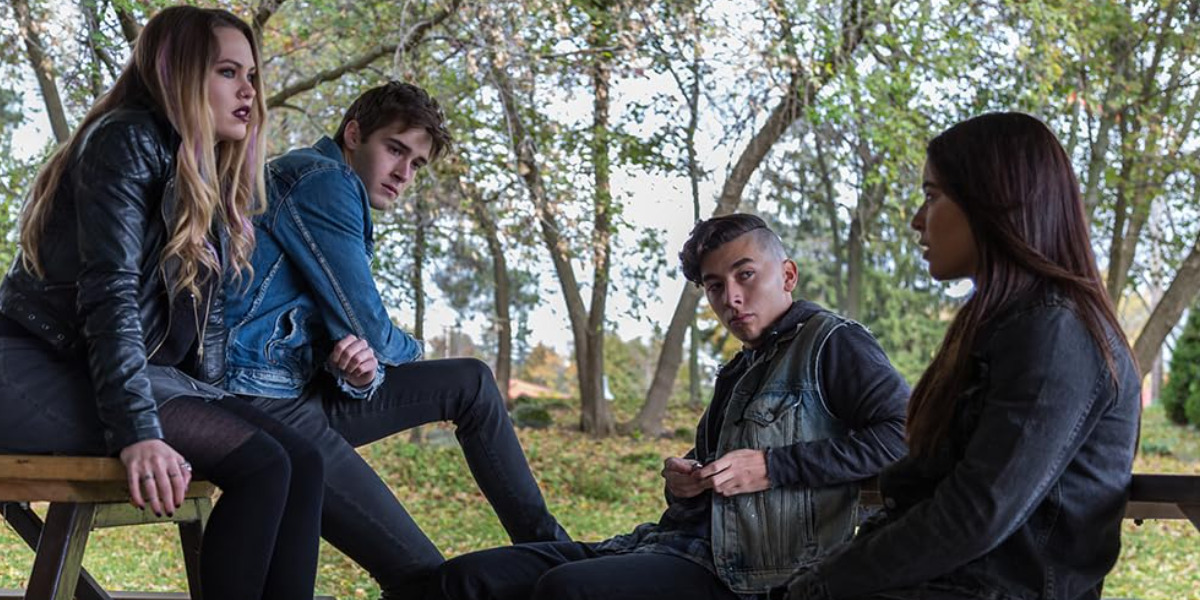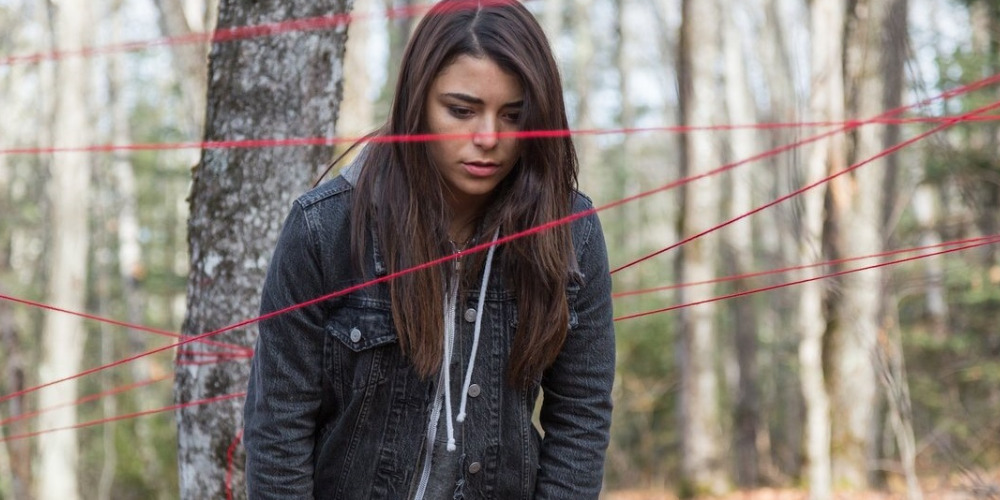The 2017 film ‘Pyewacket,’ directed by Adam MacDonald, is a horror drama movie that analyses the strife relationship between a teenage daughter and her mother following a tragic family loss. Shortly after her father’s death, Leah Reyes turns to occult interests to find comfort from her unbearable home life with a neglectful, grieving mother. As the tension between the mother-daughter duo snaps, she recklessly performs a summoning ritual and brings a great evil into her life: Pyewacket.
Trapped in a nightmarish situation of her own making, Leah tries to survive and set things back to normal. Deeply rooted in witchcraft and the supernatural, ‘Pyewacket’ tells a thrilling but unnerving story of survival and complicated family dynamics. The film focuses on Leah’s teenage angst and uses that to imbue the narrative with authenticity, which grounds the outlandish tale. Given the nuanced depiction of the dynamic between Leah and her mother and the Satanist imagery in ‘Pyewacket,’ viewers might wonder about its connection to reality. Let’s delve into the same!
Pyewacket: Inspired by Folklore, Not a True Story
‘Pyewacket’ is not based on a true story. Writer/director Adam MacDonald invented the film’s plotlines and characters from his imagination for the most part. Nevertheless, he still cultivated inspiration from reality wherever he found it. Centering around a black magic ritual, this film heavily deals with mysterious themes of the occult. While implementing the same, MacDonald wanted to ensure as much authenticity as possible. As such, he devoted himself to thorough research of black magic pertaining to real life for about a year.

Likewise, the idea of Pyewacket, which serves as the film’s primary foundation, also stems from actual folklore. MacDonald first got the idea for this film after revisiting William Friedkin’s 1990 film ‘The Guardian,’ in which a character offhandedly mentions the name ‘Pyewacket.’ Intrigued by the name, MacDonald went down a rabbit hole of research that instantly inspired him to create this film.
“Everything stemmed from that name. It was such a moment of inspiration. I’ve been wanting to do something with the occult, and it all just fit. I took some elements from my own and saw the whole movie like a lightning bolt,” said MacDonald in an interview with HorrorXtra while recounting his writing experience. “It took a month to write. I was a man possessed!”
Therefore, much of the inspiration behind Pyewacket’s character stems from real-life stories and folklore surrounding the witch spirit. Inversely, ample creative liberty is also taken with the character to fit into the storyline. For instance, MacDonald pulled the idea of Pyewacket’s presence as an eerie silhouette in a dark room from his own fears.
“Lying in bed at night in the dark and imagining something/someone “sitting” in the corner of the room by the wall and ceiling sends goosebumps down my spine,” said the director. This imagery of the unknown inducing terror is used a few times in the film and dramatically informs the narrative’s approach to horror. This intentional utilization of ambiguity was inspired by Japanese horror, a genre that influenced MacDonald’s storytelling.
In the same vein, MacDonald drew inspiration from real life for the film’s emotional heart. The film revolves around the contentious relationship between Leah and her mother. By basing itself around complex family dynamics, ‘Pyewacket’ effortlessly forms a connection with a large part of the audience. Of course, to execute the same authentically, MacDonald had to have a deep understanding of Leah’s character and struggles.
“I know that feeling, that, sort of, launching pad of what she was going through. Like I knew exactly what she was feeling in the movie. You build these strong friendships, and you might just, you know, sever that,” said Macdonald in a conversation about Nicole Muñoz’s character. “It’s not like you’re an adult and can reach out, you know. It’s just isolating, so you lash out in these really kind of abrupt and intense ways, especially if she [Leah] is full of angst, you know.”
Ultimately, ‘Pyewacket’ takes some inspiration from folklore for its supernatural elements, which helps it stay grounded even in its fantastical genre. Similarly, the dynamic between Leah and her mother provides genuine relatability to the film. As such, it explores an intimate yet universal relationship between a child and their parent, which seems reminiscent of reality. Still, the Adam Macdonald directorial’s supernatural elements swiftly cement the storyline as a fictional tale.
Read More: Pyewacket Ending, Explained: Does Leah’s Mother Die?


You must be logged in to post a comment.